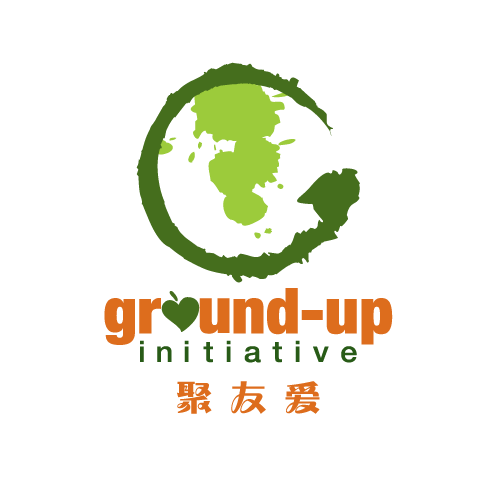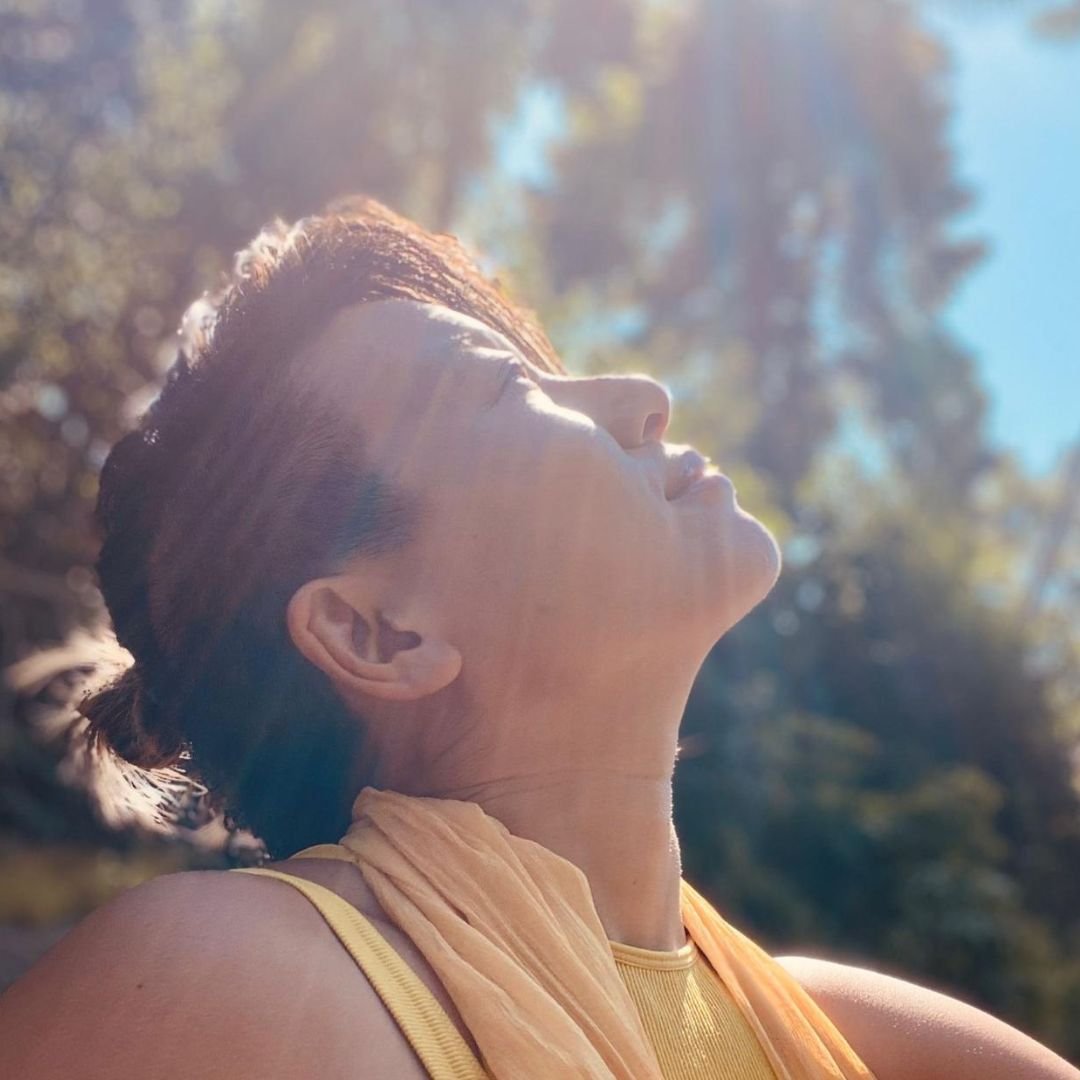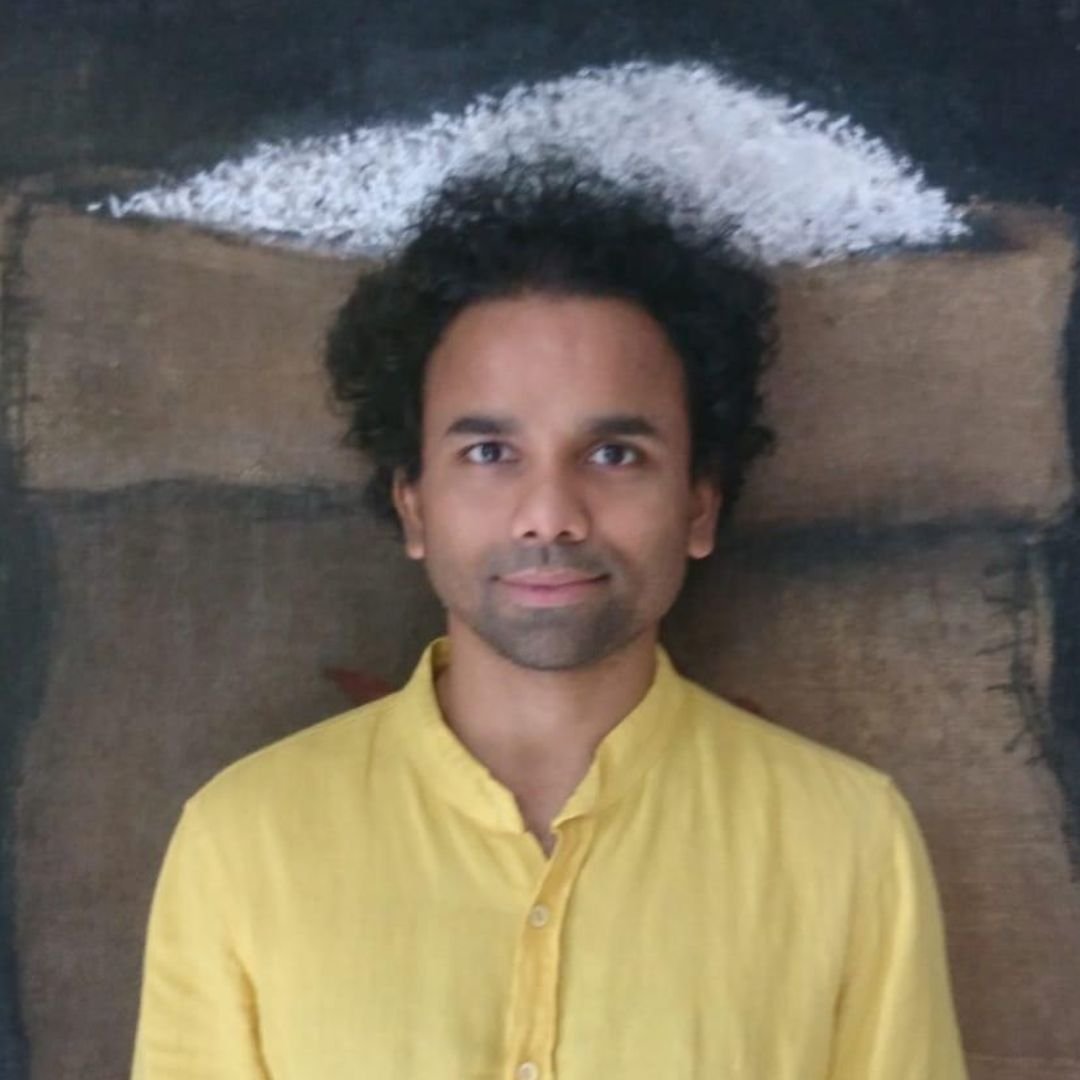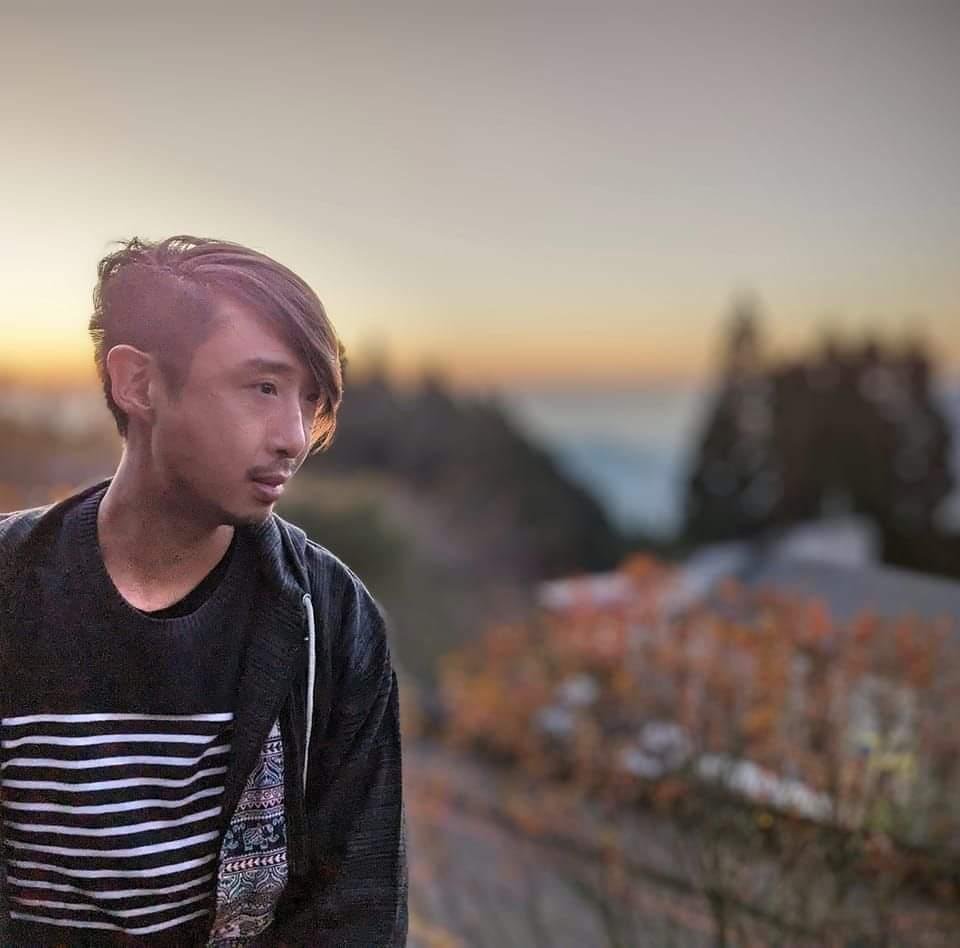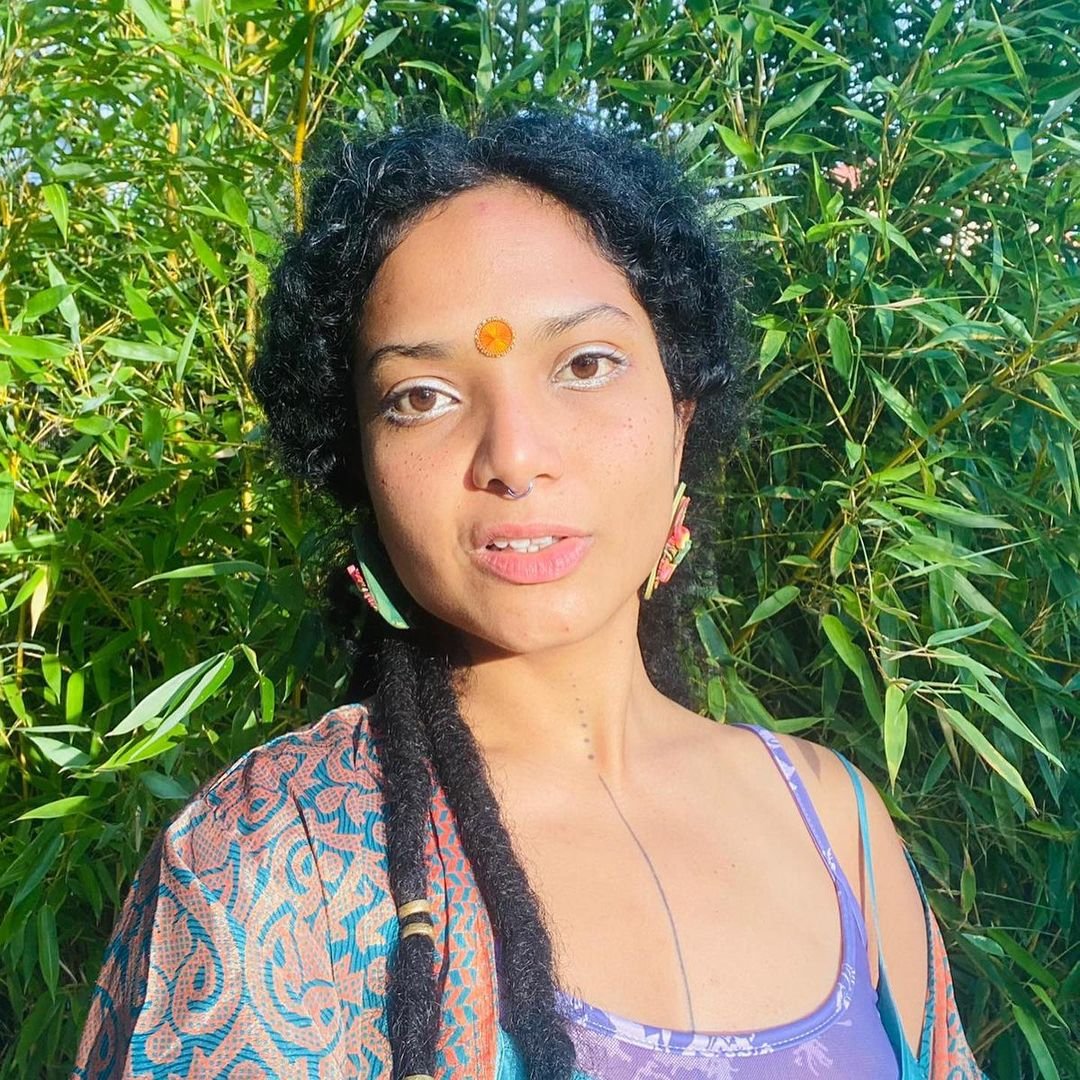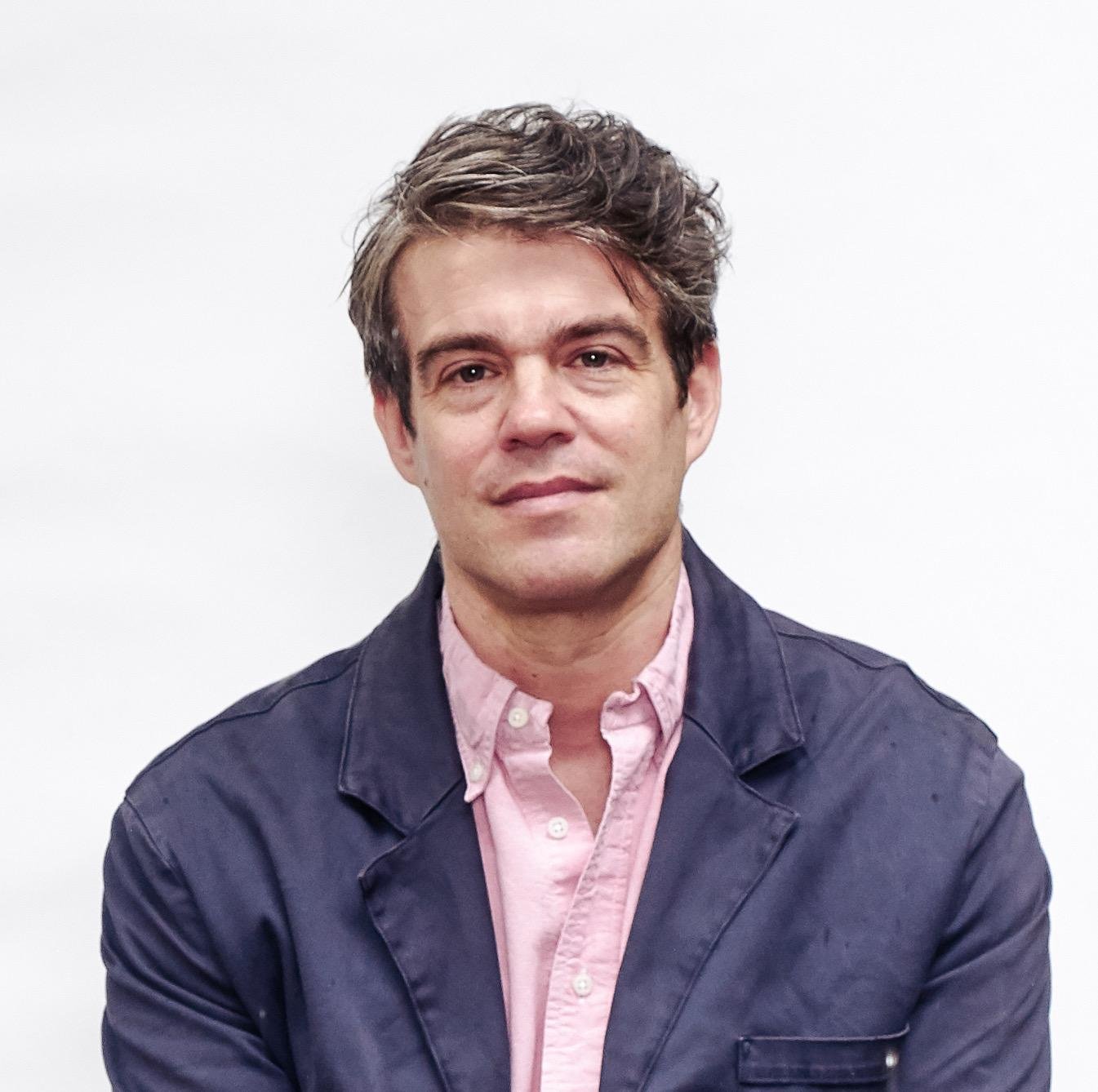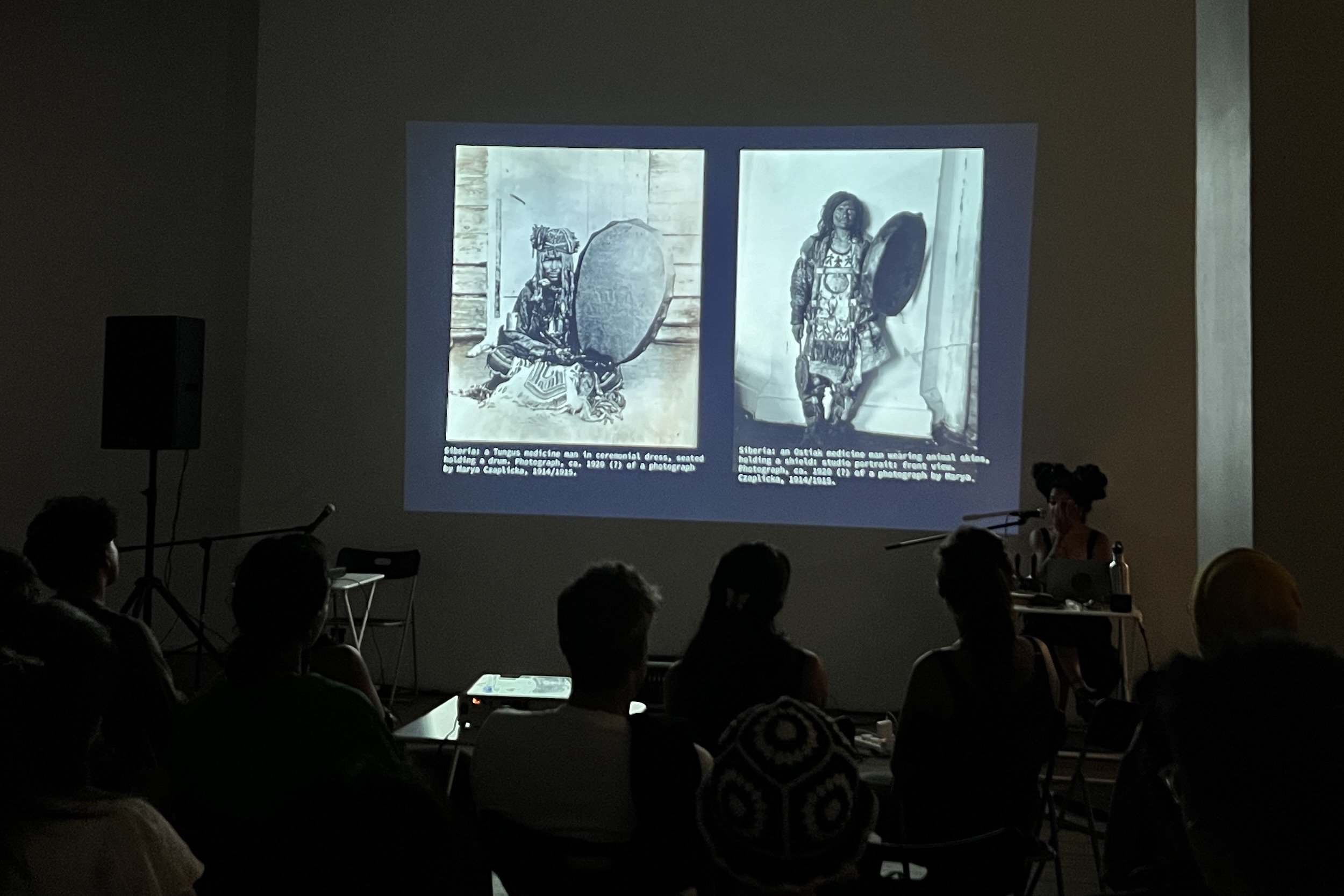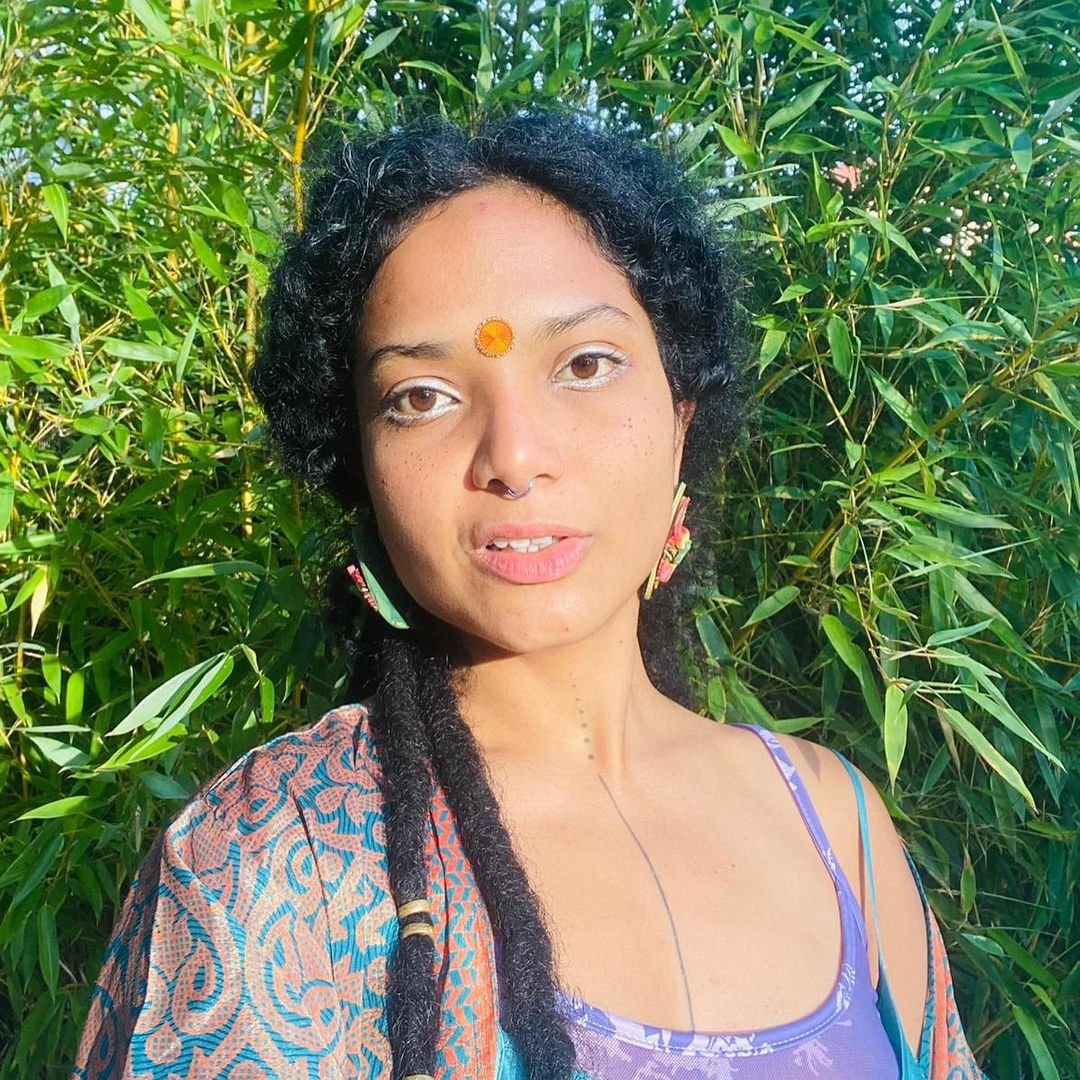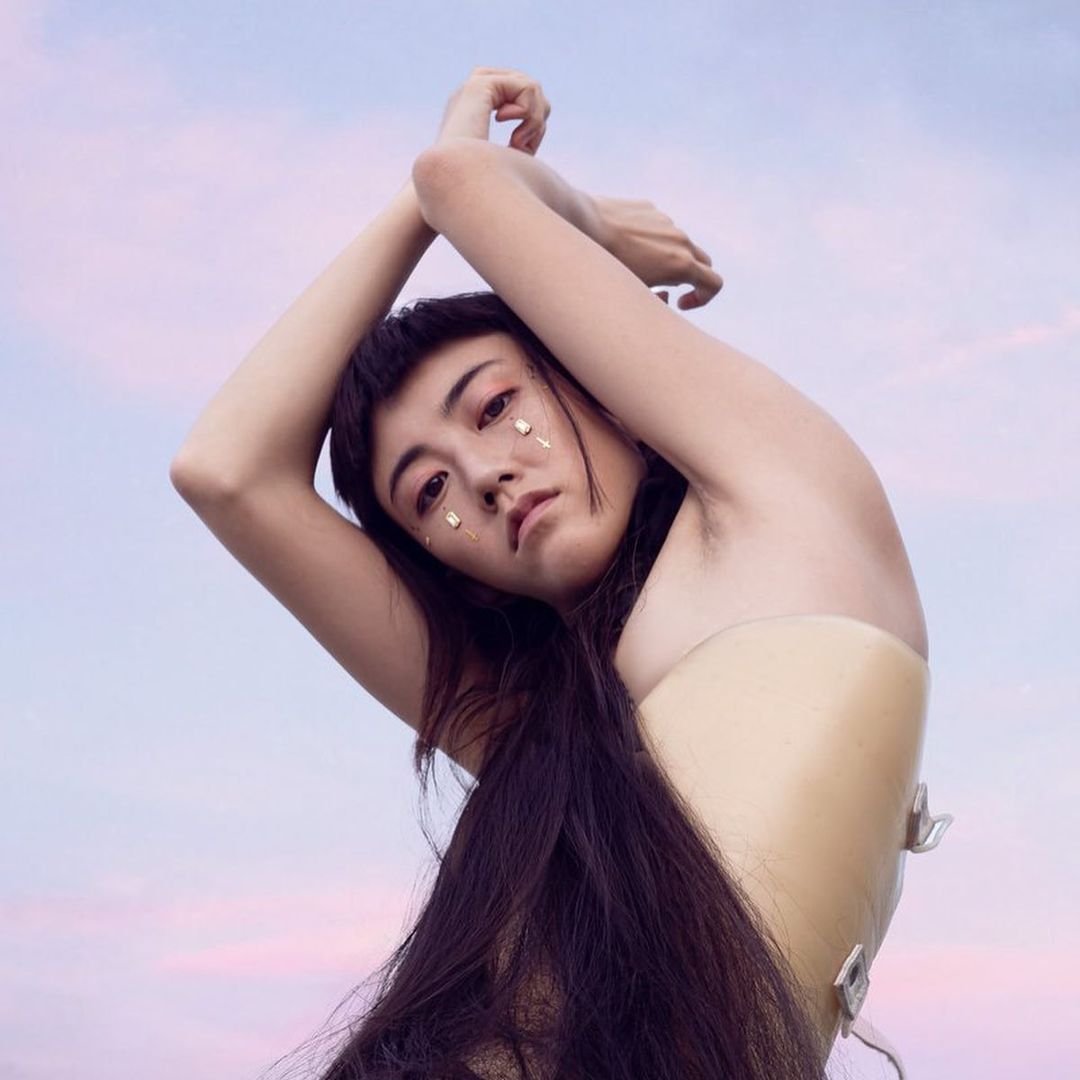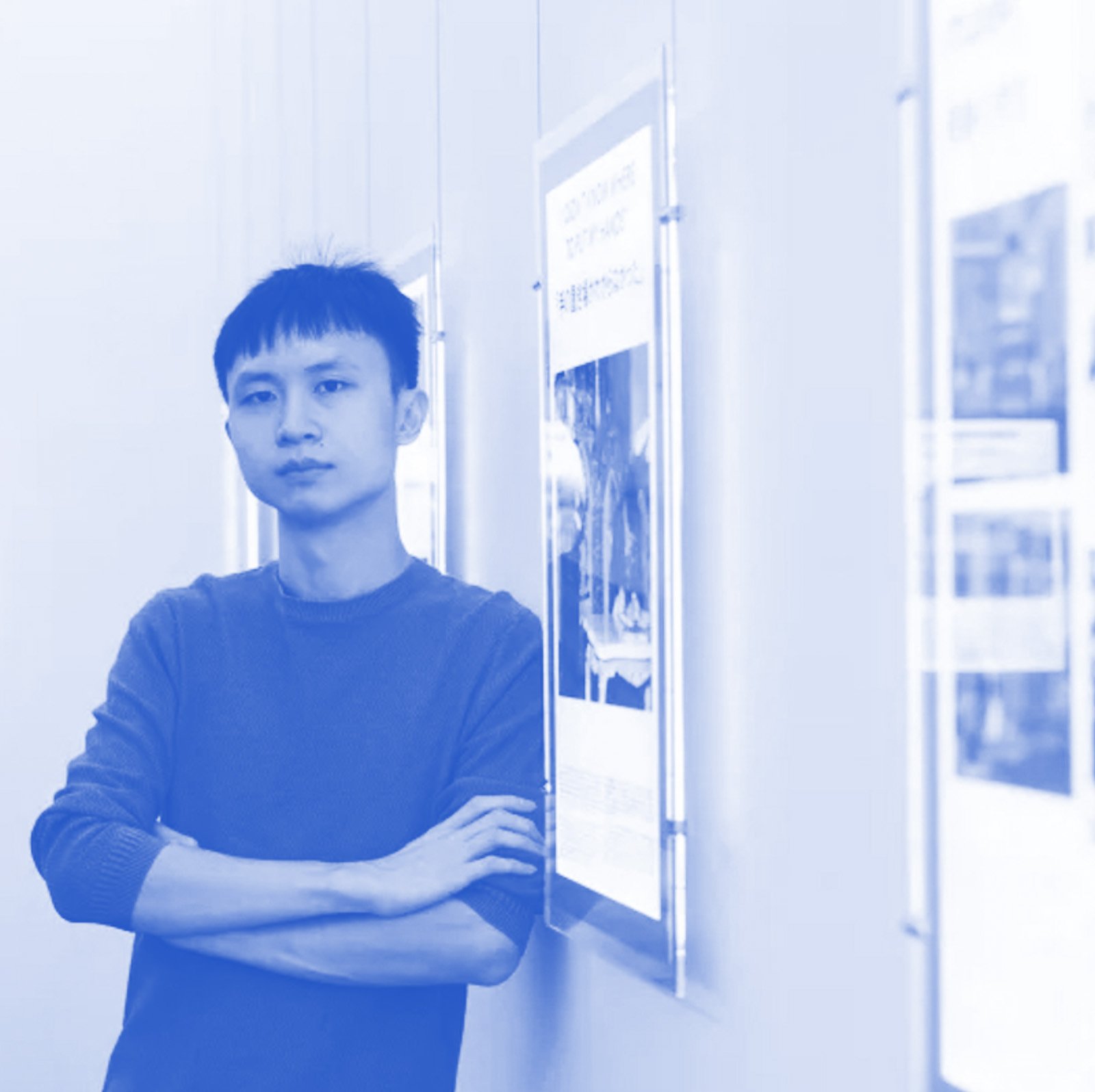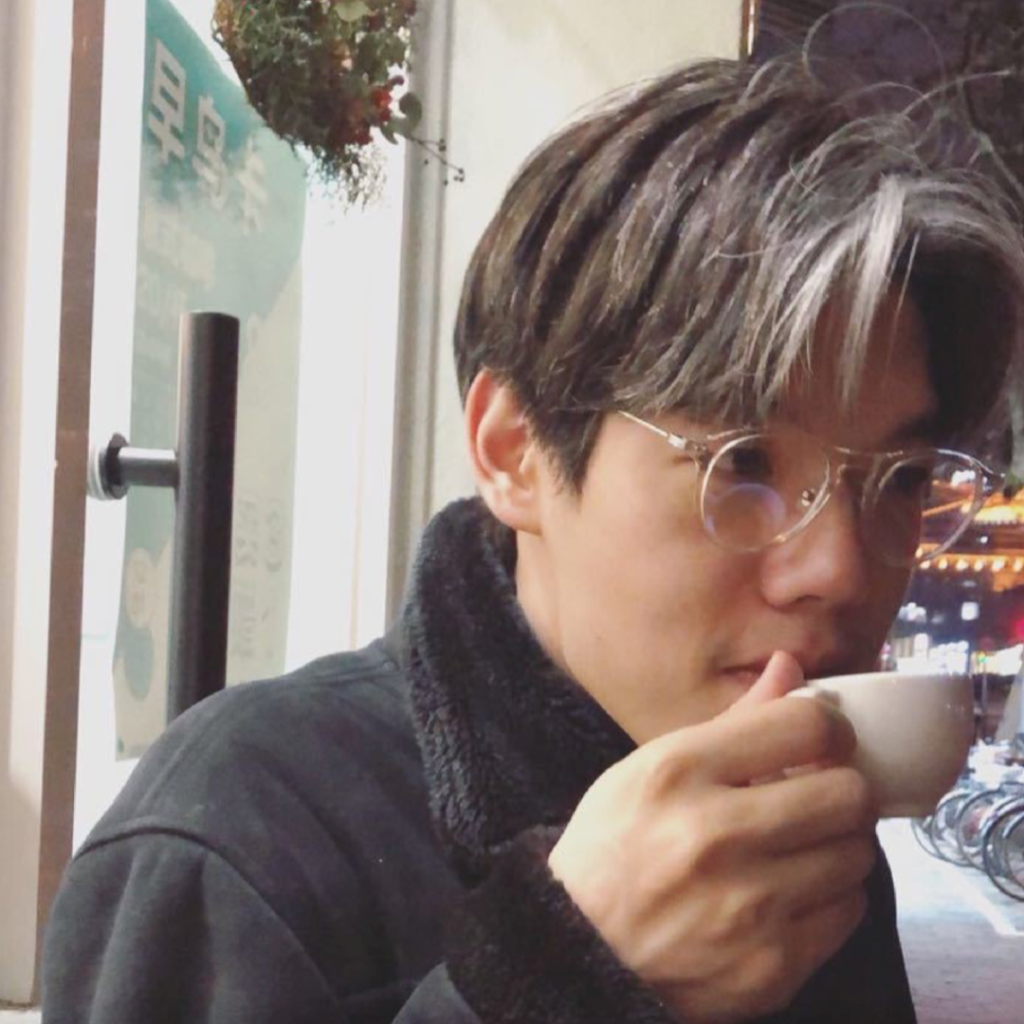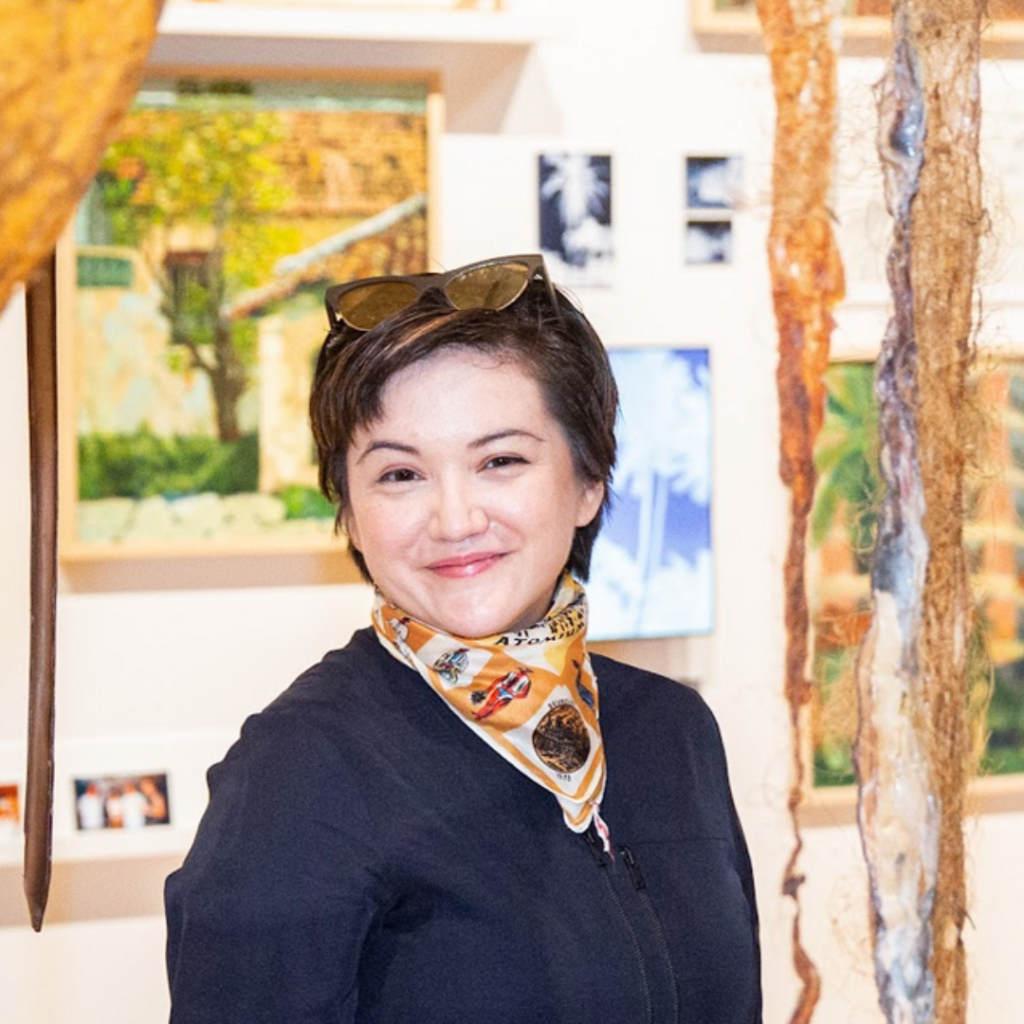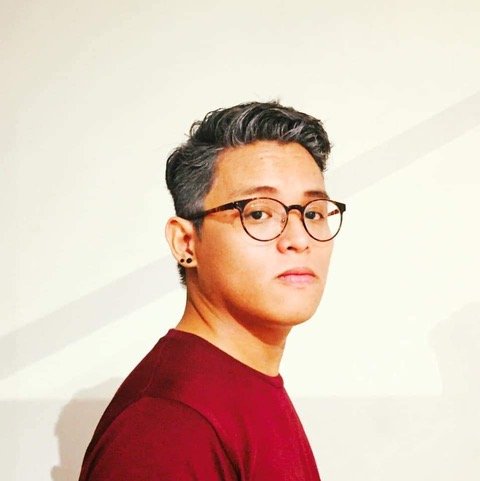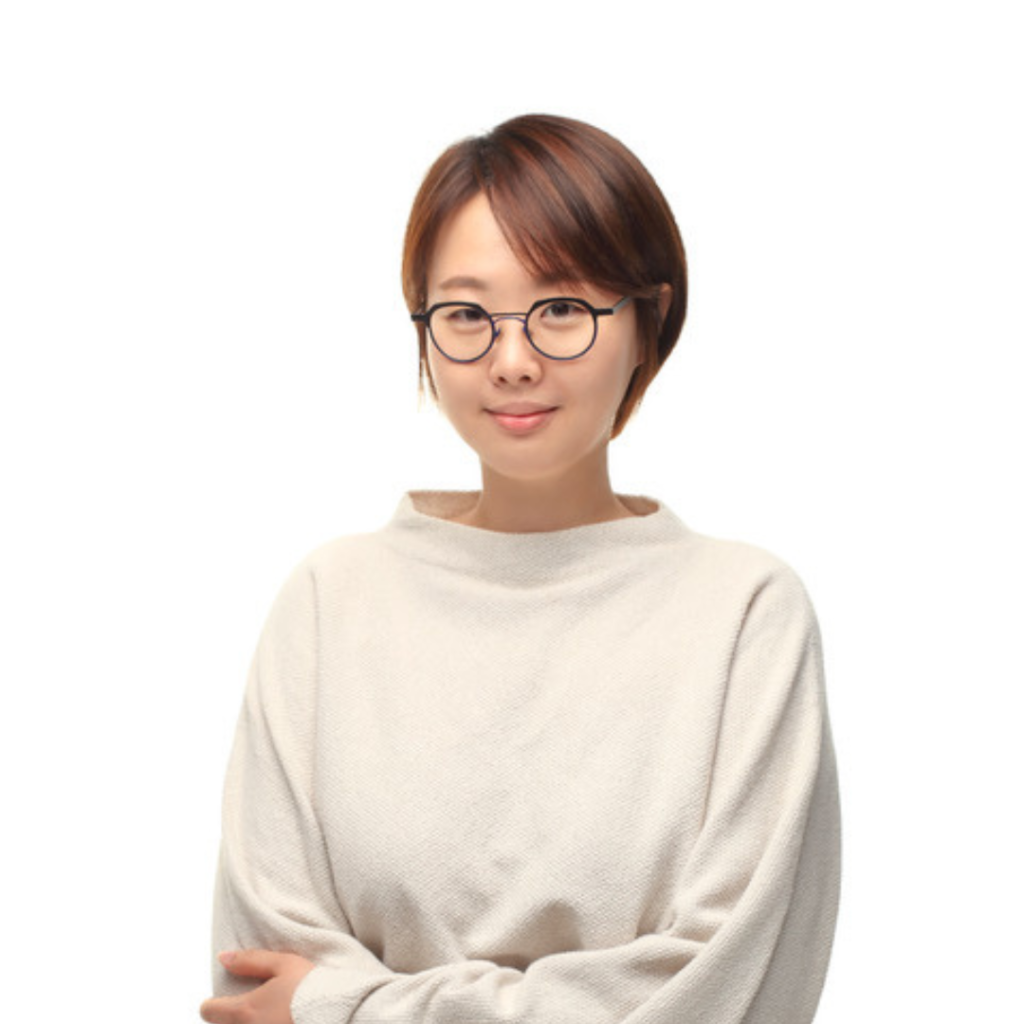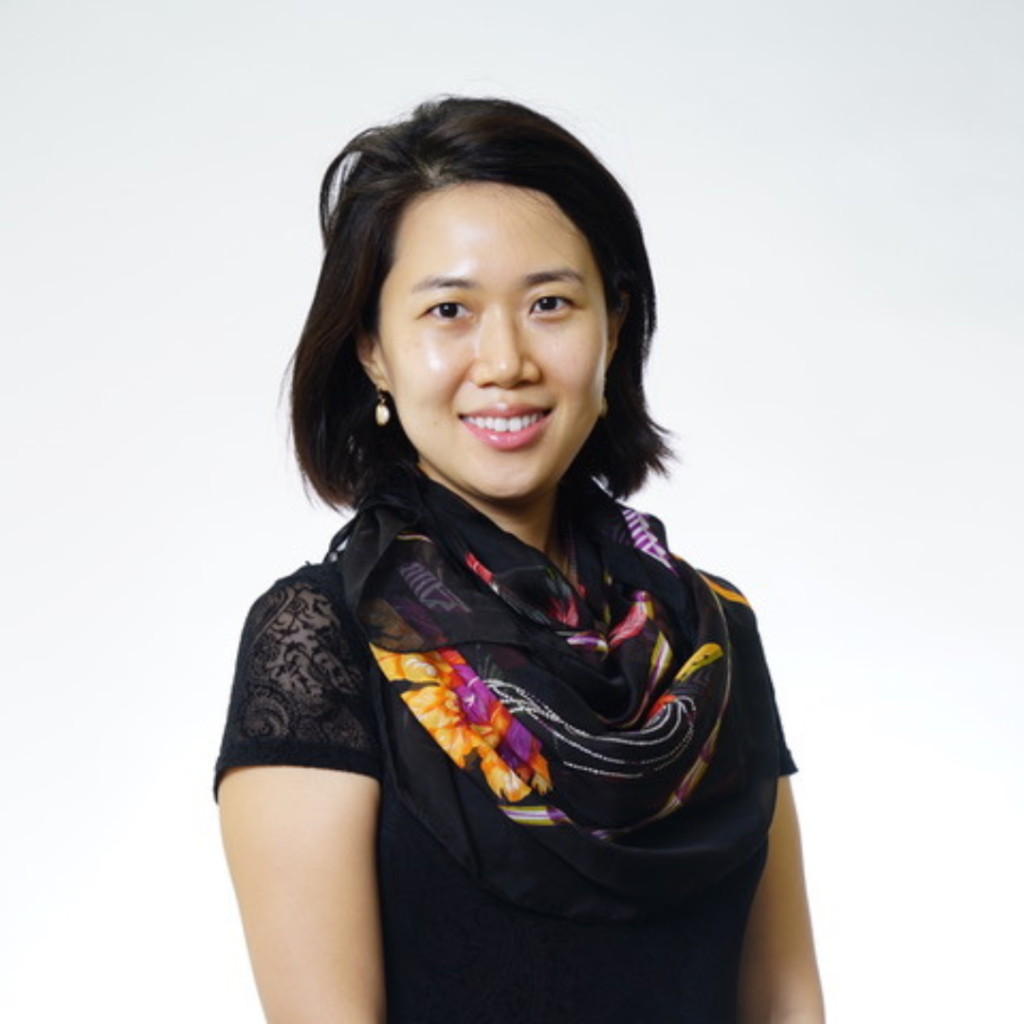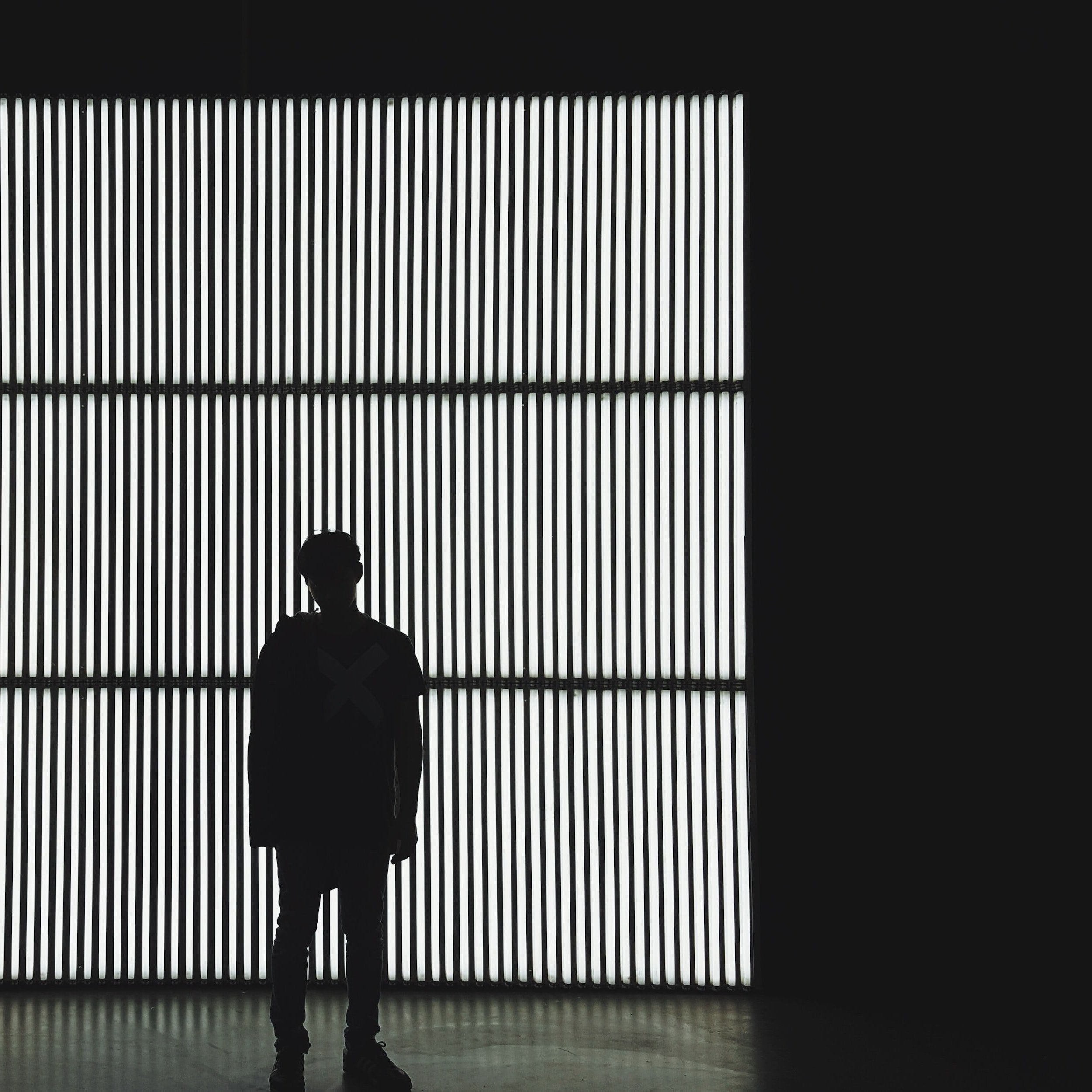
CoThink Lab
CoThink Lab in its ethos presents thought leadership from independent Singapore artists, cultural workers, writers, curators, and scientists. This fellowship platform began in April 2021 through the format of digital keynotes by Singapore Fellows who are at the forefront of research and/or activating local communities. This has since developed into diverse formats.
As the Singapore companion to the Per°Form Open Academy, Per°Form CoThink Lab focuses on the practitioner as a thought leader engaged between multiple locals and the international, actively bridging histories, the precarious present, and world-creating. It is conceptualised and led by T:>Works Artistic Director, Dr. Ong Keng Sen.

A Film Double Bill: Sandcastles and Moving Earth
Living Soil Series
T:>Works presents the Living Soil Series as part of CoThink Lab, kicking off with A Film Double Bill: Sandcastles and Moving Earth.
What do we consider as home? The constructed complex we live in? The land where we make our livelihood? The narratives of moving homes and earth, land use policy and the construction industry led by urban development will be uncovered.
Join us for a pre-show activity to pen down stories of relocation and land reclamation. After the screenings, engage in a post-film panel discussion moderated by Vivian Lee from Living Soil Asia, featuring Sandcastles producer Martin Loh, Moving Earth director Ian Mun, and Bing Yu from Ground-up Initiative (GUI) — a non-profit society dedicated to fostering sustainable kampung culture through active community participation
Screenings
Sandcastles (2024)
By Carin Leong
Sandcastles (2024) parallels two Singapores: one in Southeast Asia, and one buried on the western coast of Michigan. On top of sharing the same name, these two places also share a fraught relationship with sand.
Singapore, Michigan was a thriving lumber town in the late 19th century until erosion from mass deforestation caused the sand dunes around it to shift and swallow the town whole. Just as quickly as Singapore, Michigan disappeared under sand, its namesake in the East emerged from it through land reclamation.
The film weaves a narrative that intertwines the two Singapores to depict the temporal nature of human edifices built on and destroyed by nothing more than sand.
Director: Carin Leong
Producers: Martin Loh, James Qiu, Carin Leong, Jacob Fertig, Jaydn Ray Gosselin
Editor: Jaydn Ray Gosselin
Cinematographers: Lincoln Yeo, Luc Ung, Jacob Fertig
Sound Designers: Ernie Goh
Moving Earth (2024)
By Ian Mun
Against the backdrop of nation−building and urban development in Singapore, a touch of bittersweet nostalgia lingers in the air as the good people of Ground−Up Initiative (GUI) bid their home goodbye in preparation for the move to a new land.
What happens when we love our earth from the group up? We start by loving the soil that makes us. 2024 marks the start of GUl’s big move, a movement that brought together people from all walks of life who believed in a common vision to write a new chapter in our environmental story. To have filmed Moving Earth was a privilege to step into this journey, to peer into a whole new world of stories. To all who were involved in this heartfelt story, thank you for teaching me how to love this planet deeper through soil − the very foundation we live on.
Director: Ian Mun
Producers: Roving Studio, Rachel Cheang, Neo Xiayun
Cinematography and Edit: Ian Mun
Colourist: Aaryan Chowdhary
Featuring: Cai Bing Yu, Wu Yen Hua (Mrs Tang), Mei Chang from Ground−Up Initiative (GUI)
-
Carin Leong is a Singaporean documentary filmmaker and multimedia journalist based in Brooklyn.
Her work explores themes of science, cultural memory, and landscapes. Her latest film, Sandcastles, supported by Field of Vision, was selected for IF/Then SEA, a joint program by the Tribeca Film Institute and IN−DOCS, and premiered at SXSW in 2024. Her earlier documentary Canciones de Memorias premiered at the Singapore International Film Festival in 2018. In 2024, she was recognised by Filmmaker Magazine as one of the 25 Faces of Independent Film.
Carin’s work has been featured by outlets including Scientific American, Hakai Magazine, and The Atlantic. She holds a master's degree in science journalism from Columbia University's Graduate School of Journalism and is also a graduate of New York University's Tisch School of the Arts.
-
Ian Mun is a Singapore based wildlife and conservation storyteller. As a filmmaker and a photographer, he weaves tales that give life to untold stories, bridging the gap between humanity and nature. With every narrative, he seeks to celebrate our planet, one story at a time. In 2021, he founded The Roving Studio, a creative space dedicated to unearthing stories where communities, culture, climate, and the natural world converge.
-
Ground-Up Initiative (GUI) is a non-profit organisation in Singapore that promotes sustainable living and community spirit through immersive, nature-based programs. Established in 2008, GUI is a grassroots urban intervention in response to the social and environmental challenges brought about by rapid urbanisation and the climate crisis.
At GUI, every activity—from farming to food waste composting, glass and plastic upcycling, to nurturing local flora and fauna—is designed to involve the community directly in the process. Kampung Kampus, GUI’s flagship space, was built hand-in-hand with volunteers over many years, turning it into a living example of what’s possible when people are invited to care for the land together. This co-creation fosters deep ownership and pride. Research shows that when people are actively engaged in shaping and maintaining a space, they are far more likely to respect and protect it. The same holds true for our environment.
In a world increasingly reliant on automation and outsourced maintenance, GUI stands for the power of human engagement in place-keeping. Through simple acts like gardening, building, and upcycling—done together—long-term care and responsibility are nurtured. The most resilient and beloved cities of the future will balance smart systems with community involvement. GUI believes in this vision and has brought this approach to many grassroots spaces beyond Kampung Kampus. As we move into our next chapter, we hope to continue growing this movement—one built on care, connection, and collective action.
Living Soil Asia, part of the Foodscape Collective ecosystem, champions a balanced ecosystem built on equity, care, and regenerative practices. Their mission is to broaden knowledge and accessibility of regenerative methods in Singapore, emphasising a community-oriented, care-based approach. They merge ancient wisdom with modern technology to regenerate soil and reconnect people with the land, advocating for soil's crucial role in climate change, food security, and sustainability discussions. This organisation stands as a beacon for environmental stewardship and community-driven sustainability, committed to nurturing each person's unique contributions to a healthier planet and fostering a culture of care and personal engagement.

Conversation Between Sahana Ghosh and Sorawit Songsataya
Discursive Programme by Wong Binghao (Bing)
Conceived and moderated by Wong Binghao (Bing) as part of their CoThink Lab Fellowship at T:>Works, this closed-door programme for artists, graduate students, curators, and researchers will feature presentations by artist Sorawit Songsataya and anthropologist Sahana Ghosh, who will share ongoing research and artworks. Utilising gender as a methodology in their respective practices, Sorawit and Sahana reconceive and interrogate national, geopolitical, and regional formations, as well as modes of representing and making sense of the self.
-
Shana Ghosh is a social anthropologist, broadly interested in forms and experiences of inequality produced through the intersection of mobility, policing, and gender in our contemporary world. Sahana uses ethnography and feminist approaches to study a range of concerns, such as: borders and borderlands, the mobility of people and goods, citizenship, refuge and neighborliness, the national security state, agrarian change, spatial history, transnational kinship, and the political economy of gendered labor. She conducts research in India and Bangladesh.
(Text courtesy of National University of Singapore.)
-
Sorawit Songsataya is a multimedia artist based in Te Whanganui-a-Tara Wellington, New Zealand. Previous interdisciplinary work encompasses sculpture, ceramic, textile, moving-image, and 3D animation. Acknowledging Te Ao Māori and Thai belief systems, Sorawit explores themes rooted in geological, ecological, and culturally significant histories to redefine our understandings of subjectivity and ecology.
(Text courtesy of Ural Biennial.)
Binghao (Bing) (they/them) approaches art essayistically, as eclectic constellations of practice, research, and lived experience. They apply this modality to create essays and discursive projects including publications, digital, public, research, and educational programs, performance and live events, creative direction, and international exchange and residency programs. They are invested in developing rigorous and original research around contemporary art practices, specifically in relation to transfeminist approaches to gender, sex, love, popular cultures, new media and technology, anthropology, and area studies.

5G Hotspot
Keynote Lecture by Wong Binghao (Bing)
Following the intuitions of their essayistic approach to art, CoThink Lab Fellow Wong Binghao (Bing) will read composited excerpts from research essays that they have written in the past decade. This material will sediment into its primary object: 5G Bing, an Internet grimoire that compiles wayward and extravagant ideas, writing, aesthetics, and cultural criticism, edited and creative directed by Bing. Part magazine, mood board, PR campaign, journal, research dossier, and archive, 5G Bing is a growing network of collaborations and conversations that have been jointly enabled by digital and curatorial technologies. The project accrues from and further annotates 7 years of discursive projects by Bing that locate the stakes of the curatorial in non-exhibitionary forms.
Media Release: What's Coming Up at T:>Works: Explore Nature & Ecologies with Yasmine Ostendorf-Rodríguez and 5G Hotspot with Wong Binghao!
Binghao (Bing) (they/them) approaches art essayistically, as eclectic constellations of practice, research, and lived experience. They apply this modality to create essays and discursive projects including publications, digital, public, research, and educational programs, performance and live events, creative direction, and international exchange and residency programs. They are invested in developing rigorous and original research around contemporary art practices, specifically in relation to transfeminist approaches to gender, sex, love, popular cultures, new media and technology, anthropology, and area studies.

SINEW
Rave by Bussy Temple
CoThink Lab Fellow Bussy Temple presents SINEW: This rave explores individuality and fractures within queer communities, reflecting on how these dynamics can be both generative and destructive.
SINEW
:: a piece of tough fibrous tissue uniting muscle to bone; a tendon or ligament.
:: the parts of a structure, system, or organization that give it strength or bind it together.
i come to in a cacophony. patchwork of cries. some feel like a wail, others more like a growl. together, we form a chorus; raw and aching. my face feels numb. stretched beyond its state -- a certain kind of botoxed buoyancy -- an eerie airiness beyond the layer. exposed to the elements, a flap of skin. i can't move it out of a smile.
beyond me are kin, forced into the same fate: thin, delicate layer of skins, sewn together in a tapestry. where my face ends, yours begins. you frown; i laugh. you sneer, i cry. we sing in different pitches, dream in different colours. we await the one who held us here, the one who wanted to separate and examine us.
are you my enemy?
do we see each other writhing?
can you feel the trembles on the edges of your skin when i cry?
Graphic design credits: @eyelidmovie
Photos by Farzanah Hussein (@farzanahhussein)
A collective of creatives organising raves centred around queer, trans, nonbinary and femme individuals, Bussy Temple organically formed through the shared frustration over the lack of non-cis-men queer spaces in Singapore. Their parties serve as a social and political tool to activate the queer imagination and transformative potentials of gender and identity, as well as create safe spaces for the queer community to let go, glitch, and expand our ways of being.
From left to right, top to bottom: Nydia Shiang, Zenon, Minsoo Bae, Bruce Lim, Aki Hassan, Jo Ho

Open Conversations: On Future Hopes for Queer Community & Accountability
Open Conversations by Bussy Temple
How can we imagine accountability processes to look like within our communities?
What are our hopes and visions for the future of the queer community in Singapore?
How can we belong while holding room for differences?
CoThink Lab Fellow Bussy Temple invites Bussy Temple's community members and fellow rave organisers to Open Conversations: On Future Hopes for Queer Community & Accountability. Come co-reflect with us on rave organising, accountability, and hopes for the queer community.
This event intends to be a non-hierarchical and collaborative environment, rooted in mutual exploration and open dialogue. Together, we will explore ideas and solutions through shared insights and experiences.
The session will include a Build-A-Rave workshop, where we want to hear how you would approach different problems that rave organisers face; space to process the last party together; and a larger co-reflection on hopes for our community.
A collective of creatives organising raves centred around queer, trans, nonbinary and femme individuals, Bussy Temple organically formed through the shared frustration over the lack of non-cis-men queer spaces in Singapore. Their parties serve as a social and political tool to activate the queer imagination and transformative potentials of gender and identity, as well as create safe spaces for the queer community to let go, glitch, and expand our ways of being.
From left to right, top to bottom: Nydia Shiang, Zenon, Minsoo Bae, Bruce Lim, Aki Hassan, Jo Ho

Postcritical Spirituality: Love, Spirit & Southeast Asian Natures
Performance Seminar by Opens
This seminar asks — how do we love nature? To what extent does a love for nature inspire action? Drawing on historical research on religion and ecology in maritime Southeast Asia, assistant professor in Southeast Asian Studies and Malay Studies Faizah Zakaria (NUS) explores love for nature as fascinated enchantment, as acts of care, as protective impulses, as patient forbearance, and as motivation for the renovation of self and others. Moving across time, we will trace how our interactions with non-human beings have been mediated by religion, and later, by secularisation. Through elephants in the Malay peninsula, songbirds in postwar Singapore, and bio-remediation plants in the Lorong Halus wetlands, Zakaria aims to bring religion to what philosopher Lauren Berlant calls “a properly political concept of love” and explore its possibilities for galvanising action — or conversely, for entrenching inertia.
-
Faizah Zakaria is assistant professor in the Departments of Southeast Asian Studies and Malay Studies at the National University of Singapore. Her research interests center on religion and ecology, environmental justice and indigenous movements in island Southeast Asia. Her first monograph The Camphor Tree and the Elephant: Religion and Ecological Change in Maritime Southeast Asia (2023) was published by the University of Washington Press. She is presently working on a research project on science and religion in volcanic eruptions and co-coordinates a digital humanities project on comparative Asian medicine. She received a PhD in history from Yale University in 2018.
Opens is a para-academic forum based in Singapore. Against the authoritarian-technocapitalist enclosure of the physical and discursive spaces of our island-city-state, they experiment with modes of discourse-making, space-making, and conceptual research & development intended to catalyse speculative incursions into other possible futures. Opens consists of an informal network of co-conspirators. The administrative and organising labour is currently performed by founding co-organisers Helios Singh Bajwa and Arunditha Emmanuel.

Postcritical Spirituality: Pecha Kucha + Community Mixer
Pecha Kucha Micro-Presentations by Opens
Since May, CoThink Lab Fellow Opens has invited artists, academics, and activists invested in spiritual knowledges and practices to participate in Critical Spirituality, a programme series examining the place(s) of the spiritual in the contemporary world.
Opens was happy to gather some of its collaborators together once again for Postcritical Spirituality, an evening of Pecha Kucha micro-presentations followed by a free-and-easy community mixer.
Pecha Kucha Micro-Presentations
My Journey into Buddhism as a Non-binary Girl
Micro-Presentation by An Ding
This micro-presentation was an intimate, heartfelt sharing of An Ding’s unusual, winding journey into Buddhism by way of Christian Evangelicalism, atheism, and interfaith exploration. Through a mix of anecdotes drawn from her spiritual journey and personal meditations on Buddhist scriptures and practices, she offered an inspiring tale about finding queer affirmation through spiritual practice, and a glimpse into the work that could be (and is being) done to transform traditionally conservative communities and environments.
Threshold, Frontline, Frontier: Biodynamics in Struggle & The Power of Witness
Micro-Presentation by Meli Chan Lee
How can body-centered healing practices attuned to our original embodied being-states also nourish political action and enable collective repair? Through personal anecdotes gathered from her experiences in activism, performance, and therapeutic practice, Meli Chan Lee’s micro-presentation encouraged us to tap into our bodies’ potentials to better awaken and amplify consciousness, offering strategies for expanding our thresholds to receive the vibrant life-forces within and around us.
Cow, Union Buster!
Micro-Presentation by Parashar Kulkarni
Did the spread of the cow protection movement in colonial and postcolonial India encourage identitarianism and erode working class solidarity? Reviewing the situation in and around industrial cotton mills from the onset of the industrial revolution in India to the 1990s, Parashar Kulkarni’s micro-presentation discussed how the cow, a sacred symbol in Hinduism, was appropriated and weaponised in the anti-labour strategies of mill owners, political leaders, and pro-capitalist governments, becoming symbolic of new collusions between religion, politics and capital.
A Study of Redness: the Scarlet Woman & the Red Man
Micro-Presentation by Jireh Koh
In this micro-presentation, Jireh Koh discussed findings from his interdisciplinary research on mythology, theology, and meaning-making practices, focusing on a pair of enigmatic red-hued figures: the Scarlet Woman and the Red Man. Tracing the controversial, ambivalent roles played by these recurring figures across different religious/spiritual traditions, from Christianity and modern western esotericism to Hinduism and (Greco-)Buddhist thought, Jireh took the motif of redness as an entry point towards reflecting on a range of pressing themes, including gender roles, the abject, and the use of subversion and transgression as means for reclaiming power and agency.
Convergent Shamanism Through A Diasporic Lens
Micro-Presentation by Arunditha Emmanuel
Shamanism is arguably the most ancient and universal form of human spirituality, with multiple shamanisms arising around the world and throughout (pre)history in a kind of convergent evolution. Drawing on ethnographic materials and personal insights and experiences, Arunditha Emmanuel’s micro-presentation discussed some of the techniques and principles that guide her own neo-shamanic practice, offering a glimpse into the cosmological schema of one shamanic being.
Spectro-Commodities: A Very Brief Introduction
Micro-Presentation by Joshua Comaroff
It might seem curious that ghosts and spirits in Singapore are widely believed to be covetous, up-to-date consumers. Whereas “spectral theory” in the West often associates the ghost with the immaterial, the historical, and with lack, a rich and wildly diverse economy of offerings and other goods, including effigies modeled after luxury cars, designer clothes, gourmet foods, and the latest tech (not to mention absurdly exorbitant sums of hell money), has evolved to cater to the needs of the non-living here. In this micro-presentation, Joshua Comaroff shared some of his research into past and present conventions for ancestral gift-giving, and explored the questions that emerge around this medium of popular religious aesthetics.
-
An Ding is a reader, writer and educator broadly interested in the theology, practices, and material cultures of all world religions. Her latest book, "Phoenix Rising: A Memoir about being Bipolar, Gay and Christian," chronicled her experiences undergoing conversion therapy, navigating the mental healthcare landscape in Singapore, and negotiating her various intersectional identities. She volunteers with Rainbodhi Singapore, a spiritual friendship group for LGBTQIA+ Buddhists, and is currently working on a book about sex, queerness & Buddhism with Kyle Neo, founder of Rainbodhi Singapore.
-
Meli Chan Lee is a craniosacral therapist working between clinical and psychospiritual modalities with a background in dance improvisation/performance, critical studies and community organizing. An anthropologist and activist by training, she has most recently been working with collaborative transnational teams on generating new models for ritual, healing, and breath- and body-work for civic society frontliners in East and Southeast Asia. A child of Asia and the US, her BA in Anthropology, Theatre, and Peace & Conflict Studies is from Swarthmore College, PA.
-
Parashar Kulkarni is an author, documentary filmmaker and an assistant professor working at the intersections of religion, history and material culture at Yale-NUS. He has published in literary and academic journals such as Granta, The Sociological Review, Boston Review, Social Science History, and the British Journal of Political Science. His writing has received several prizes including the British Academy’s Brian Barry Prize, Boston Review Aura Estrada Prize, and the Commonwealth Writers Short Story Prize. His first novel, Cow and Company, published by Penguin Random House Viking, is about the interactions of religion and capitalism under colonialism.
-
Jireh Koh is a multidisciplinary artist and arts educator whose eclectic practice spans visual art, sound, movement and performance. His recent work draws especially on his research into comparative theology, mythology, and world esoteric practices, as well as his background as a Hindu-Buddhist Tantric practitioner. Jireh has exhibited on many occasions locally and abroad, including, most recently, at the group show Leave Nothing But Footprints co-organised by The Artist Village and L’Observatoire at Starch. He is also a classically trained vocalist who performs with VocaSong Ensemble.
-
Deborah Arunditha Emmanuel is a performance artist and writer working between poetry, sound, movement, and the dramatic arts. She has performed at many events and festivals locally and worldwide, winning poetry slams in Singapore, New Zealand, Germany and Australia. She has been resident writer/artist at the Watermill Center in New York, Literarisches Colloquium in Berlin, and The Marpha Foundation in Mustang. She makes neo-shamanic tribal funk music with Mantravine and co-organises Opens, a para-academic forum based in Singapore.
-
Joshua Comaroff is a geographer and assistant professor of urban studies at Yale-NUS College and a designer at Lekker Architects. He studied literature and creative writing at Amherst College before joining the Master of Architecture and Master of Landscape Architecture programmes at Harvard. In 2009, he completed a PhD in cultural geography at UCLA, writing on the subject of haunted landscapes and urban memory in Singapore. In recent years, he has written about architecture, urbanism, and politics with an Asian focus, and is the co-author (with Ong Ker-Shing) of Horror In Architecture (2013).
Opens is a para-academic forum based in Singapore. Against the authoritarian-technocapitalist enclosure of the physical and discursive spaces of our island-city-state, they experiment with modes of discourse-making, space-making, and conceptual research & development intended to catalyse speculative incursions into other possible futures. Opens consists of an informal network of co-conspirators. The administrative and organising labour is currently performed by founding co-organisers Helios Singh Bajwa and Arunditha Emmanuel.

Lethal Fantasies: Chrysalis
Rave by Bussy Temple
Join CoThink Lab Fellow Bussy Temple at Lethal Fantasies, their recurring party series to platform femme and nonbinary DJs and artists within Southeast Asia’s vibrant contemporary electronic dance music scene.
In Lethal Fantasies: Chrysalis, aspects of femininity beyond power and seduction will be explored. Into the gory, undesirable, and eerie, through soundscapes from Teya Logos, Puppy Ri0t, rempit G0ddE$$, Suhsi, Metamoksha, nydthakid and performances by XUE, Sonia, and Divya.
Head to @bussytemple to find out more. Graphic design credits: JJ Low @arcaneomorph.
Video documentation of Lethal Fantasies: Chrysalis. Video by 8t6. (Contains flashing lights and may not be suitable for photosensitive epilepsy.)
A collective of creatives organising raves centred around queer, trans, nonbinary and femme individuals, Bussy Temple organically formed through the shared frustration over the lack of non-cis-men queer spaces in Singapore. Their parties serve as a social and political tool to activate the queer imagination and transformative potentials of gender and identity, as well as create safe spaces for the queer community to let go, glitch, and expand our ways of being.
From left to right, top to bottom: Nydia Shiang, Zenon, Minsoo Bae, Bruce Lim, Aki Hassan, Jo Ho

Critical Spirituality Series - Ecstatic Initiations: Sound Through Shamanism
Workshop-Presentation with Performance-Demonstration by Opens
Sound is an essential element of the shamanisms practiced in indigenous cultures around the world, and continues to be an indispensable tool for neo-shamanic practitioners today. For the shaman, sonic techniques and technologies can open a multitude of dimensions within the self and the other, helping practitioners access altered states of consciousness, facilitate methods of healing and divination, and enable translocal and interspecies forms of communication.
In this workshop-presentation, Arunditha Emmanuel discussed the role of sound in shamanism and its possible intersections with contemporary music-making and creative processes. The evening concluded with an intuitive sound performance-demonstration by Arunditha and collaborating artist-musician Anise.
-
Deborah Arunditha Emmanuel is a performance artist and writer working between poetry, sound, movement, and the dramatic arts. She has performed at many events and festivals locally and worldwide, winning poetry slams in Singapore, New Zealand, Germany and Australia. She has been resident writer/artist at the Watermill Center in New York, Literarisches Colloquium in Berlin, and The Marpha Foundation in Mustang. She makes neo-shamanic tribal funk music with Mantravine and co-organises Opens, a para-academic forum based in Singapore.
-
Anise (Suhui Hee) is a multidisciplinary artist and electronic musician working with sound, performance and experimental scoring. Her research interests delve into inhumanisms and the body as ecosphere.
Opens is a para-academic forum based in Singapore. Against the authoritarian-technocapitalist enclosure of the physical and discursive spaces of our island-city-state, they experiment with modes of discourse-making, space-making, and conceptual research & development intended to catalyse speculative incursions into other possible futures. Opens consists of an informal network of co-conspirators. The administrative and organising labour is currently performed by founding co-organisers Helios Singh Bajwa and Arunditha Emmanuel.

Father’s Womb
Rave by Bussy Temple
T:>Works’ CoThink Lab Fellow, Bussy Temple, presents Father’s Womb, a rave with an all queer and gender non-conforming lineup, wishing to celebrate those who do not find themselves settled on a single identity this pride season.
Rave spaces often lack the opportunity for gathering and encounter before the music begins. Prior to the party, Father’s Womb invites the queer ravers to The Sanctuary, an immersive space of togetherness to rest, share, and explore queer kinship and rave intimacies. It will provide mirrors, dressing/powdering area, minimal makeup tools, cushions to rest on, with private toilets available as well.
The ravers are encouraged to bring along any personal items they are ready to let go of or would like to contribute to The Sanctuary — paintings, writings, letters, photographs, objects. These items will make up the many small shrines around the space.
Collectively energising and bonding, The Sanctuary is a space where trust and care for one another feels firm and unshaken, where queer rituals manifest before the rave in ways that feel safer and comfortable, without judgement.
Video documentation of Father’s Womb. Video by 8t6. (Contains flashing lights and may not be suitable for photosensitive epilepsy.)
A collective of creatives organising raves centred around queer, trans, nonbinary and femme individuals, Bussy Temple organically formed through the shared frustration over the lack of non-cis-men queer spaces in Singapore. Their parties serve as a social and political tool to activate the queer imagination and transformative potentials of gender and identity, as well as create safe spaces for the queer community to let go, glitch, and expand our ways of being.
From left to right, top to bottom: Nydia Shiang, Zenon, Minsoo Bae, Bruce Lim, Aki Hassan, Jo Ho

A Land Imagined: A Transnational Framework on Land Reclamation and Labour
Digital Keynote by Dr Jerrine Tan
Hosted and Moderated by Dr. Ong Keng Sen
Zoom Webinar
8pm (SGT/HKT) / 8am (EDT) / 2pm (CEST)
Yeo Siew Hua’s “A Land Imagined” is interspersed with long scenes at a work site. The camera often rests on the droning work of machines and workers carting and sorting gravel. But for all the movement that is displayed, no change has taken place. Piles of gravel are demolished and moved to make new piles. The persons in the film appear similarly fungible: an injured labourer can become a driver, a corpse may or may not explain a disappearance. Ultimately, the site is revealed to be a land reclamation site which reveals that movement of gravel is not a closed innocuous system, but is part of a zero-sum game, in which one country grows bigger by cannibalising those around it. Using Saidiya Hartman’s work on fungibility as a lens through which Dr Jerrine Tan considers the modern-day “coolie” in the film, and Lisa Lowe’s writing on immigration and citizenship, her Per°Form keynote allegorises the movement of and across bodies of water for the similar movement of indentured labourers.
Media Release: Per°Form presents Digital Keynote by Dr Jerrine Tan — A Land Imagined: A Transnational Framework on Land Reclamation and Labour
Jerrine (she/her) is an Assistant Professor of English and currently teaches in Hong Kong. She received her PhD from Brown University and was previously a Visiting Lecturer in Global Anglophone Literature at Mount Holyoke College. Her research interests include World Literature, Transnational Literature, Critical Race Studies, Gender and Sexuality Studies, and Film. Her scholarly and public writing have been published or are forthcoming in Modern Fiction Studies, Cambridge Companion to Kazuo Ishiguro, Lit Hub, WIRED, Los Angeles Review of Books, Asian American Writers’ Workshop, The Brooklyn Rail, and Post45.
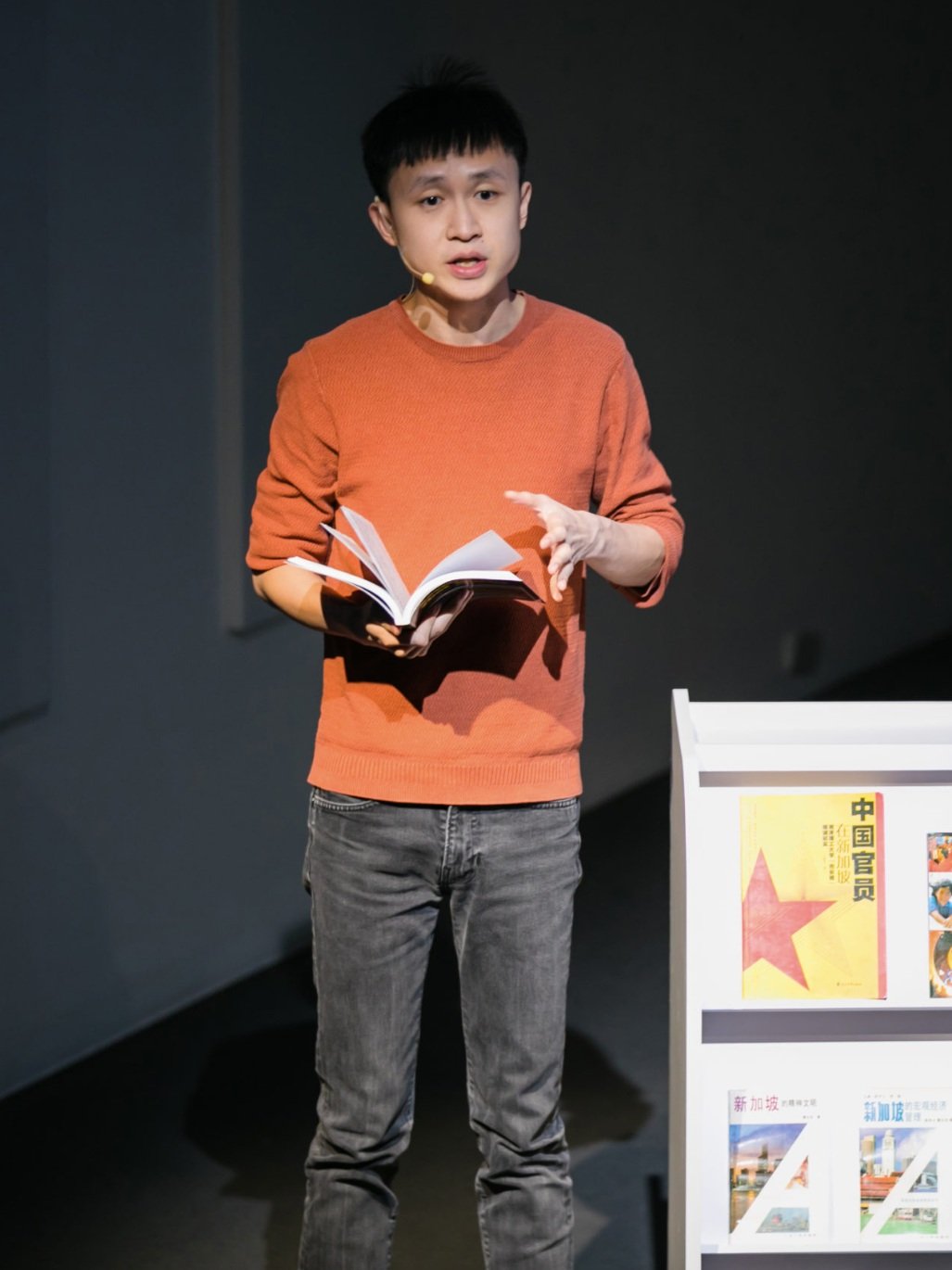
A World of Lines: From Third World Solidarities to Postsocialist Globalism
Installation view of “The Economy Enters the People” (2021–22), Ho Rui An, Lecture and video installation with digital prints on paper, conference table, office chairs, desk, stool, book trolley, books, thermos flasks, cups, saucers and acrylic name plate holders. Photo: Ketsiree Wongwan. Courtesy of Bangkok CityCity Gallery.
One-Day Discursive Programme Curated by Ho Rui An
In 1971, a big-character poster put up by a frustrated worker at a factory manufacturing computers in Maoist-era China read: “The management follows the line of experts instead of the mass line; to build a computer one must know not only how to connect the lines but also where to draw the line!” About a year later, S. Rajaratnam, the Singapore foreign minister, vividly invoked in a now-historic speech the “tentacles of technology” that connected a global “chain of cities” which included the then rapidly developing city-state. Reading these two moments against the contemporary context of a globally integrated Chinese economy, the observation by the Singaporean statesman appears to have anticipated the displacement of Cold War-era ideological lines by the network of “lines” that would enable China to “open up” its economy to global capitalist markets during its Reform era.
Organised by artist, writer and Per°Form Fellow Ho Rui An, A World of Lines: From Third World Solidarities to Postsocialist Globalism explores the shifting geopolitical imaginaries within what was known as the Third World during the historical period that began with the end of empire and culminated in the late seventies with the foreclosure of socialism as a mass political project. In pursuing this periodisation, this one-day discursive programme seeks to map a historical trajectory distinct from Eurocentric narratives that situate the neoliberal triumph over international socialism in the late eighties. Contesting the enduring image of the fall of the Berlin wall as a liberation of the people into the free and unbounded space of the market, it considers instead what new lines are drawn to secure the market and how the persistence of socialist legacies amidst postsocialist globalism complicates the penetration of global capital into national markets across the world.
Through a series of presentations, workshops and focused conversations, invited speakers will share their research in response to these themes while facilitating a collective process of thinking with the various visual and literary sources that they have gathered from both public archives and private collections. This source-based and open-ended format reflects the ongoing and speculative nature of the inquiry amidst the intensification of unresolved Cold War-era tensions, resurgent ethnonationalisms and widening socioeconomic inequalities that have come to disrupt the lines of labour, technology and capital in the prevailing global order.
Presentations & Workshops
Factories, Tables, Revolution, Economy
Workshop with Ho Rui An and Zian Chen
Drawing upon their research into the political economy of Reform-era China, Ho Rui An and Zian Chen will share a selection of historical material sourced from official archives, informal networks and popular culture with which they seek to map the emergence of “the economy” as a distinct subject of governance in China beginning in the 1970s. Moving from cinematic scenes of factory workers pressuring their managers to adhere to the principles of socialist management to photographs of Chinese and Singaporean technocrats seated at massive meeting tables discussing techniques for managing society, this workshop invites participants to think through the set of separations—the party-state from the masses, information from ideology, the political from the economic—that underwrote the displacement of the revolutionary mass line by the lines of labour, technology and capital that connect everything within the global economy. Such a process preceded the official launch of China’s economic reforms by several years and was best observable at such liminal sites as the Canton Fair (China Import and Export Fair) where the capitalist and socialist worlds converged in a time when the ideological lines of the Cold War were being redrawn.
To A Faraway Friend: Letters Written with Fire
Workshop with Kathleen Ditzig, Sooyoung Leam and Carlos Quijon, Jr.
Based on research that has grown out of their Afro-Southeast Asian Affinities exhibitionary project, participants will explore the complex negotiation of neocolonial struggles for sovereignty under strongmen-led “democracies” across East and Southeast Asia during the Cold War. Participants will be encouraged to study historical material that illustrate demonstrations and uprisings in the region. They will also be asked to consider how neocolonial entanglements have mediated discourses of sovereignty, self-sufficiency, and self-interest. Participants will be invited to write fictional letters to a faraway friend to reconstruct their own “history” of these events. By leaning into the historical and the fictive as productive political gestures and questioning the responsibilities of marshalling these gestures, participants will not only reflect upon lesser known aspects of the evolving relationship that exists between postcolonial countries and world powers, but also consider how contemporary geopolitics and ideologies have coloured and framed the lens with which we can read histories of postcolonial solidarities and the futures that they set aflame.
Shekou, Jurong: Industrial Zone, Developmental State and Global Neoliberalism
Presentation by Taomo Zhou
Located on the western coast of Shenzhen, China’s first and most successful special economic zone, Shekou is an enclave just a little more than 2-square-kilometres that is even more experimental than Shenzhen itself. Established in January 1979, more than one year before the official launch of the Shenzhen Special Economic Zone, Shekou was the first “test tube” in socialist China that accepted foreign investment. Shekou’s design and development was partially inspired by Jurong, a district located in the western part of Singapore which transformed from a swamp land to an industrial hub in the 1970s. In this presentation, Taomo Zhou, who grew up in Shekou and has spent the past seven years living and working in Jurong, will share her memories and observations about the two industrial zones. Through this process, she seeks to explore larger questions about the international history of industrialisation and deindustrialisation and the global emergence of neoliberalism.
-
Ho Rui An is an artist and writer working in the intersections of contemporary art, cinema, performance and theory. Working primarily across the mediums of lecture, essay and film, he probes into the ways by which images are produced, circulate and disappear within contexts of globalism and governance. He has presented projects at the Bangkok Art Biennale; Asian Art Biennial; Gwangju Biennale; Jakarta Biennale; Sharjah Biennial; Kochi-Muziris Biennale; Kunsthalle Wien; Haus der Kulturen der Welt, Berlin; Van Abbemuseum, Eindhoven; NTU Centre for Contemporary Art Singapore; and Para Site, Hong Kong. In 2019, he was awarded the International Film Critics’ (FIPRESCI) Prize at the International Short Film Festival Oberhausen, Germany. In 2018, he was a fellow of the DAAD Artists-in-Berlin Program.
-
Zian Chen periodically collaborates with artists and writers to develop alternative frameworks for thinking and speculation. He is one of the founding members of Pailang Museum of Settler Selves (2022–), an editor-in-residence for Compost in ICA NYU Shanghai (2021–2022), as well as one of the editors for Made in Public (2022) and Arrow Factory: The Last Five Years (2020). He has also curated Production Fever 2008: Study Materials in Nida Art Colony, Nida (2022). In 2020–21, he was one of the founding editors for Heichi Magazine, an online journal for contemporary art published weekly in Chinese and English.
-
Kathleen Ditzig is a Singaporean researcher and curator. She is currently a curator at National Gallery Singapore and a PhD candidate at the NTU School of Art, Design and Media. Her research interests include exhibitionary histories of Southeast Asia, global histories of capitalism and the enduring legacies of the Cold War. Her curatorial practice aspires to the iterative and meaningful building of networks and platforms. It has involved the development of artist residencies, publications and exhibitions for museums and government agencies. She co-founded offshoreart.co (with Robin Lynch and Debbie Ding), which looks at financial flows and extrastatecraft through the artworld, and Afro-Southeast Asia Affinities (with Carlos Quijon Jr.), which has been supported by KONNECT ASEAN and part of the digital platform South-South. Other than her iterative projects, her recent exhibitions include Art Histories of a Forever War: Modernism Between Space and Home, co-curated with Fang Tze Hsu at Taipei Fine Art Museum (2022), and As The West Slept, Performa Consortium Project, Silver Art Projects New York (2019). Her research and writing has been published by MoMA Post, Southeast of Now (NUS Press), Afterall, Artforum, OSMOS magazine, Art Agenda, Art Review Asia, among others.
-
Carlos Quijon, Jr. is an art historian, critic, and curator based in Manila. He was a fellow of the research platform Modern Art Histories in and across Africa, South and Southeast Asia (MAHASSA), convened by the Getty Foundation’s Connecting Art Histories project. He writes exhibition reviews for Artforum (NY) and CNN Philippines. His essays are part of the books SEA: Contemporary Art in Southeast Asia (Berlin: Weiss Publications, 2022), Writing Presently (Manila: Philippine Contemporary Art Network, 2019), and From a History of Exhibitions Towards a Future of Exhibition-Making: China and Southeast Asia (Berlin: Sternberg Press, 2019). Some of his essays have been published or are forthcoming in Southeast of Now: Directions in Contemporary and Modern Art, Frieze (UK), Afro-Asian Visions, MoMA’s post (US), Queer Southeast Asia (Singapore), Financial Times Weekend (UK), ArtReview Asia (Singapore), Art Monthly (UK), Asia Art Archive’s Ideas (HK), and Trans Asia Photography Review (US), among others. He curated Courses of Action in Hong Kong (Para Site and Goethe-Institut Hong Kong, 2019); co-curated Minor Infelicities (Post Territory Ujeongguk, Seoul, 2020); In Our Best Interests (NTU ADM Gallery, Singapore, 2021); Cast But One Shadow (UP Vargas Museum, Manila, 2021-2022); A Global South Cosmology of Capitalism (El Espacio 23, Miami, 2022); Synthetic Condition (UP Vargas Museum, Manila, 2022); and To A Faraway Friend (ASEAN Cultural House, Busan, 2022).
-
Sooyoung Leam is a curator and art historian working between Seoul and London. Her ongoing research on archives explores intersections between sculpture, performance and politics. She studied History of Art at Cambridge University and completed her PhD at the Courtauld Institute of Art. Her recent curatorial projects include Art Reimagined, organised by Meta (Seoul, 2022); Actually, the Dead are not Dead (Seoul, 2021); Gwangju Biennale special exhibition Between the Seen and the Spoken (Gwangju, 2021). She is currently Assistant Curator of the 14th Gwangju Biennale (2023).
-
Taomo Zhou is an Associate Professor of History at Nanyang Technological University (NTU). Taomo received her PhD from Cornell University. Her first book, Migration in the Time of Revolution: China, Indonesia and the Cold War (Cornell University Press, 2019), won a Foreign Affairs “Best Books of 2020” award and an Honorable Mention for the 2021 Harry J. Benda Prize from the Association for Asian Studies. Taomo is currently working on her second book project tentatively entitled Made in Shenzhen: A Global History of China’s First Special Economic Zone, which is under contract with Stanford University Press.
Artist and writer, Rui An, works in the intersections of contemporary art, cinema, performance, and theory. Working primarily across the mediums of lecture, essay and film, he probes the ways images are produced, circulate, and disappear within contexts of globalism and governance. He has presented projects at the Bangkok Art Biennale; Asian Art Biennale Bangladesh; Gwangju Biennale; Jakarta Biennale; Sharjah Biennale; Kochi Muziris Biennale; Kunsthalle Wien; Haus der Kulturen der Welt, Berlin; Van Abbemuseum, Eindhiven; NTU Centre for Contemporary Art Singapore; and Para Site, Hong Kong. In 2019, he was awarded the International Film Critics’ (FIPRESCI) Prize at the International Short Film Festival Oberhausen, Germany. In 2018, he was a fellow of the DAAD Artists in Berlin Program.

Image, Data, Actor: Unpacking Images of Muslim Women
Digital Lecture by Nurul Huda Rashid
Hosted by Dr. Ong Keng Sen
Zoom Webinar
8pm (SGT) / 2pm (CEST) / 8am (EDT)
T:>Works’ Per°Form continues with its third Fellow, researcher-writer Nurul Huda Rashid, currently pursuing her PhD in Cultural Studies. Her research focuses on images and narratives, visual and sentient bodies, feminisms, and the intersections between them. Her digital lecture, Image, Data, Actor: Unpacking Images of Muslim Women will be moderated by T:>Works’ Artistic Director Dr. Ong Keng Sen.
The Muslim woman has been a consistent subject of representation across regimes of historical colonialism and Orientalism, in events such as the Arab Spring and post-9/11, and mediated widely via news and social media. These have included variegated representations from the odalisque to the ‘oppressed’ which have converged the identity of the Muslim woman to the single image and symbol of the hijab (veil). Spanning across different bodies of work, this lecture will introduce and plot Nurul’s photographic, annotative, and participatory research that has engaged with representations of Muslim women from the daguerreotype to data. These projects will be discussed alongside the medium of photography and the data shift, which transforms the self into data, rendering those in the margins as ‘absent data’. Through self-reflexive means and methods, the context of ‘absent data’ will become the site for artistic explorations and aspire towards a recalibration of Muslim women identities via the role of the Muslim woman as ‘actor’ in rethinking processes of image-making.
Media Release: Per°Form presents Digital Lecture by Nurul Huda Rashid — Image, Data, Actor: Unpacking Images of Muslim Women
Nurul (she/her) is a researcher-writer currently pursuing her PhD in Cultural Studies. Her research focuses on images and narratives, visual and sentient bodies, feminisms, and the intersections between them. These have been articulated through projects such as Women in War (2016-ongoing), unknown woman/wanita kami (2021), Hijab/Her (2012-2014), and through collaborations such as Pulau Something (2021) and New Curriculum for Old Questions (2019). Nurul loves smelling old books, looking after plant babies, and hopes to adopt a cat someday.

Exhibition: Ho Rui An & Shubigi Rao
Asia the Unmiraculous by Ho Rui An (2018–20, 71 min), The Pelagic Tracts by Shubigi Rao (2018, 25 min)
Ho’s video installation Asia the Unmiraculous seeks to diffuse the aura of a “miraculous” Asia by examining the entirely profane conditions that set the stage for the first large-scale crisis of globalisation. Ho considers the conditions that made possible the “Asianisation” of the miracle and the crisis that followed.
14 digital prints in the style of real estate listings accompanies the video installation. One such example was a poster detailing the construction of high-speed rail networks as part of China’s ongoing Belt and Road initiative, revealing a juxtaposition when one recalls the history of Chinese immigrants’ labour and involvement in the First Transcontinental Railroad of the United States back in the 1860s.
Hosted in conjunction with Ho’s work, we see a return of Shubigi Rao as she presented her film, The Pelagic Tracts. Shubigi, visual artist, writer and theorist is no stranger to Per°Form having been its inaugural Fellow presented in May 2021. The Pelagic Tracts brings to focus her concern with lived histories of painful destructions and challenged the way we view what is worthy of preservation. In this film, she charts the history of lost and damaged books through a mythical world from existing letters and records from the libraries, archives, and her interactions in Kochi with local librarians and paper pulpers, as well as the libraries devastated by the floods in 2018.
This is the first time that both works have been exhibited in Singapore.
Media Release: T:>Works’ Per°Form returns with Ho Rui An and a critical perspective on the Asian “miracle”
Artist and writer, Rui An, works in the intersections of contemporary art, cinema, performance, and theory. Working primarily across the mediums of lecture, essay and film, he probes the ways images are produced, circulate, and disappear within contexts of globalism and governance. He has presented projects at the Bangkok Art Biennale; Asian Art Biennale Bangladesh; Gwangju Biennale; Jakarta Biennale; Sharjah Biennale; Kochi Muziris Biennale; Kunsthalle Wien; Haus der Kulturen der Welt, Berlin; Van Abbemuseum, Eindhiven; NTU Centre for Contemporary Art Singapore; and Para Site, Hong Kong. In 2019, he was awarded the International Film Critics’ (FIPRESCI) Prize at the International Short Film Festival Oberhausen, Germany. In 2018, he was a fellow of the DAAD Artists in Berlin Program.
Artist and writer Shubigi’s interests include archival systems, histories, lies and ecologies. Her works examine displacement of people, cultures, or knowledge bodies. Her current project on book destruction and knowledge, “Pulp: A Short Biography of the Banished Book” has garnered numerous awards from AIGA, APB Foundation, D&AD, and the Singapore Literature Prize. She has also been featured in various international exhibitions and is currently the Curator for the Kochi-Muziris Biennale 2021.

From Crisis to Value*
Digital Keynote by Ho Rui An
Zoom Webinar
8pm (SGT) / 1pm (CET) / 7pm (ET) / 3.30pm (IRST)
After a successful inaugural keynote in May 2021 by Per°Form Fellow Shubigi Rao, T:>Works Per°Form returns with a second Fellow, artist and writer Ho Rui An. He will deliver a two-part programme that began with the digital keynote, From Crisis to Value*. The keynote draws from his in-situ research in multiple Asian countries investigating the effects of globalism on Asian financial capitals. Following the keynote is his video installation, Asia the Unmiraculous, which opened in artspace 72-13, Singapore.
In the digital keynote From Crisis to Value*, Ho discusses his recent and ongoing bodies of work exploring the material networks and geopolitical imaginaries that have animated the regions of East and Southeast Asia. He will guide us through his research trajectory that began with his investigation of the so-called Asian financial crisis of the late nineties, to the political economy of post-reform China, and is now focused on the impact of the pandemic and the new socioeconomic realities it presents us with. Spanning the mediums of performance, film, and installation, the works produced from this research have variously examined the relationship between race and financial capitalism, the student as a figure of capitalist modernity and radical culture, the displacement of class politics by a discourse of anti-corruption amidst the systemic crises of late capitalism, and, most recently, the textile industry and its many afterlives within the Greater China region.
Artist and writer, Rui An, works in the intersections of contemporary art, cinema, performance, and theory. Working primarily across the mediums of lecture, essay and film, he probes the ways images are produced, circulate, and disappear within contexts of globalism and governance. He has presented projects at the Bangkok Art Biennale; Asian Art Biennale Bangladesh; Gwangju Biennale; Jakarta Biennale; Sharjah Biennale; Kochi Muziris Biennale; Kunsthalle Wien; Haus der Kulturen der Welt, Berlin; Van Abbemuseum, Eindhiven; NTU Centre for Contemporary Art Singapore; and Para Site, Hong Kong. In 2019, he was awarded the International Film Critics’ (FIPRESCI) Prize at the International Short Film Festival Oberhausen, Germany. In 2018, he was a fellow of the DAAD Artists in Berlin Program.

Per°Form Inaugural Digital Lecture by Shubigi Rao
Digital Lecture by Shubigi Rao
Hosted by Dr. Ong Keng Sen
Zoom Webinar
8pm (SGT) / 2pm (CET) / 8am (EDT)
Per°Form begins with the inaugural digital lecture by artist Shubigi Rao on 6 May 2021. The lecture will focus on three main areas of Shubigi’s practice – as a writer, an artist, and as an artist-curator for the 5th edition of the Kochi-Muziris Biennale 2021, and the overlaps and tensions between them.
Shubigi will discuss the connections between on-site artistic production and her work as artist-curator, as well as the ways in which artistic strategies inform curatorial research. Drawing from her curatorial experiences in a pandemic-affected world, she will also examine the position of artist-curator within a potentially fraught biennale-model, and the forms of knowledge generation that could potentially be sustained through such curatorial research and practice.
Artist and writer Shubigi’s interests include archival systems, histories, lies and ecologies. Her works examine displacement of people, cultures, or knowledge bodies. Her current project on book destruction and knowledge, “Pulp: A Short Biography of the Banished Book” has garnered numerous awards from AIGA, APB Foundation, D&AD, and the Singapore Literature Prize. Shubigi has also been featured in various international exhibitions and is currently the Curator for the Kochi-Muziris Biennale 2021.


